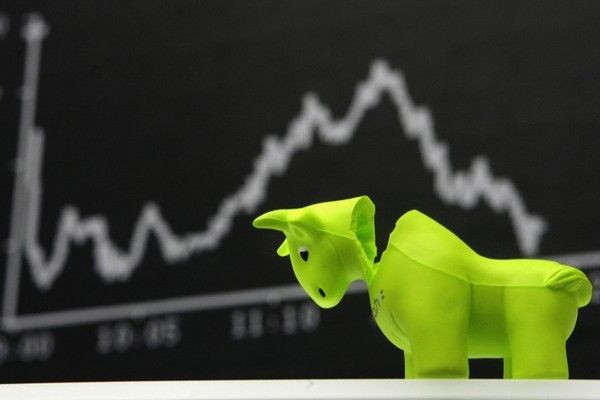European Markets Rise But Fed Stimulus Uncertainty Persists

Most European markets rose Wednesday but investors remained cautious as there were no strong hints that the U.S. Federal Reserve will announce more stimulus measures to boost the economic growth.
The German DAX 30 index rose 0.31 percent or 20.70 points to 6598.34. Shares of Allianz SE advanced 0.74 percent and shares of Linde AG climbed 0.72 percent.
The French CAC 40 index was up 0.59 percent or 18.69 points to 3195.66. Shares of Danone SA rose 0.80 percent and shares of BNP Paribas SA advanced 0.71 percent.
London’s FTSE 100 index advanced 0.25 percent or 14.16 points to 5643.25. Shares of Fresnillo PLC climbed 1.99 percent and shares of Aggreko PLC were up 1.04 percent.
Spain's IBEX 35 rose 0.32 percent or 21 points to 6579.20. Shares of Repsol SA climbed 1.29 percent and shares of Telefonica SA advanced 0.73 percent.
The Federal Reserve Chairman Ben Bernanke did not make announcement of monetary easing measures in his delivery speech to the Congress Tuesday. Investors feel that bold measures, including easing the monetary policy, will be needed to boost liquidity in the financial system.
Investors are also concerned that the euro zone sovereign debt crisis continues to rumble on, despite the temporary relief after last month’s EU summit. The inability to seal the deal on the main elements of the recent EU Summit has become a major worrying aspect for market players.
The euro zone economy is already on course for a recession due to the simultaneous retrenchment by governments, businesses and consumers. Investors feel that policymakers in the euro zone continue to do too little too late to prevent the crisis from escalating.
The euro zone crisis is also taking its toll on the rest of the world. Activity slowed in all major economies in the second quarter, including the US, China and Japan.
“A deep recession in the euro zone will have a negative impact on activity throughout the world. It will compound and prolong the weakness of world trade which has so far been most striking among advanced economies,” Capital Economics said in a note.
© Copyright IBTimes 2025. All rights reserved.





















